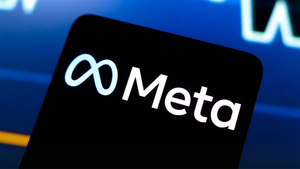
Everyone, especially the Federal Reserve (the Fed), thought that inflation was a thing of the past and that it had now been tamed enough to consider a sudden shift in monetary policy. However, this is far from reality, especially when investors consider the way some of the inflation—and interest rate-sensitive asset classes have behaved lately.
As Paul Tudor Jones correctly stated in an interview recently, all roads now lead to inflation in the United States. This is mainly caused by the overall national debt and its interest payments, which make up a significant amount of the nation’s finances today. So, according to his view, the only way to dig the economy out of this is to inflate, which is why investors need to be more aware of this trade today than ever.
With the price action in small-cap stocks measured through the iShares Russell 2000 ETF (NYSEARCA: IWM) against the iShares 20+ Year Treasury Bond ETF (NASDAQ: TLT), investors can see how the broader market is beginning to price in the potential for higher inflation in the coming quarters. More than that, the recent trades being made in the ARK Innovation ETF (NYSEARCA: ARKK) and the SPDR Gold Shares (NYSEARCA: GLD) can further confirm this trend gaining momentum.
Price Action Shift Highlights a Key Divergence Investors Can't Ignore
For the first half of 2024, the small-cap and bond ETFs tracked each other, which is expected in an economic recovery environment or the so-called “soft landing” markets were hoping for. However, these two asset classes have diverged as of the past quarter.
The small-cap ETF has remained near its highs. At the same time, the bond ETF has significantly retraced from highs, which is typical behavior of a rising inflation environment. This is the first check investors should consider in this potential inflation run. More than that, the price of overseas equities also shows the outlook favoring a rise in inflation for the United States.
Since inflation is bad for the dollar, and most overseas stocks are quoted in dollars, what is bad for the currency is good for these stocks and their prices. This is one reason Chinese stocks went on an absolute tear over the past month, where the iShares MSCI China ETF (NYSEARCA: MCHI) rallied by as much as 20.9% during the past quarter alone.
Now that the small-cap ETF approaches a significant resistance level, it would be critical to watch out for a breakout of this ceiling to get either a confirmation or denial of the inflation trade for the coming months.
At the same time, investors need to watch for a potential bottoming in the bond ETF as well. If further bearish price action follows, along with a failure for small caps to break out, it would confirm that the inflation trade is back on for most market participants.
Inflation Risks Rise: Recent Trades Signal Growing Market Concerns
Inflation risks will help value stocks and potentially hurt growth stocks, as investors prefer quality over uncertainty, which a currency's underlying depreciation will eat away. With this in mind, investors can reference the ARK Innovation ETF.
Throughout October 2024, several institutional sellers have decreased their exposure to this ETF, an action that can be taken as a potential hedge against upcoming inflation. More than that, relative price action between the iShares S&P 500 Value ETF (NYSEARCA: IVE) and the iShares S&P 500 Growth ETF (NYSEARCA: IVW) also shows signs of a coming rotation out of growth and into value or quality.
When it comes to the iShares S&P 500 Growth ETF, many unusual put options (which benefit from a stock's decline) have been spotted on the put side. These traders bought up to 21,000 contracts in a bet that the small-cap ETF would reach $180 a share by the end of October 2024, calling for a selloff as big as 18% from where it trades today.
That is one way to interpret an inflation trade, but there's another. Recently, the SPDR Gold Shares ETF has seen a new breakout in call options, which, as opposed to put options, benefit from a stock rally. Traders are now betting that the price could also reach $266 by the end of the month.
With Warren Buffett also betting on the energy sector breaking out, as he recently bought up to 29% of Occidental Petroleum Co. (NYSE: OXY), all roads seem to lead to an inflation trade coming up. That's not just a saying; it's a direct quote from Paul Tudor Jones in a recent CNBC interview, where he recommended buying commodities this quarter.





